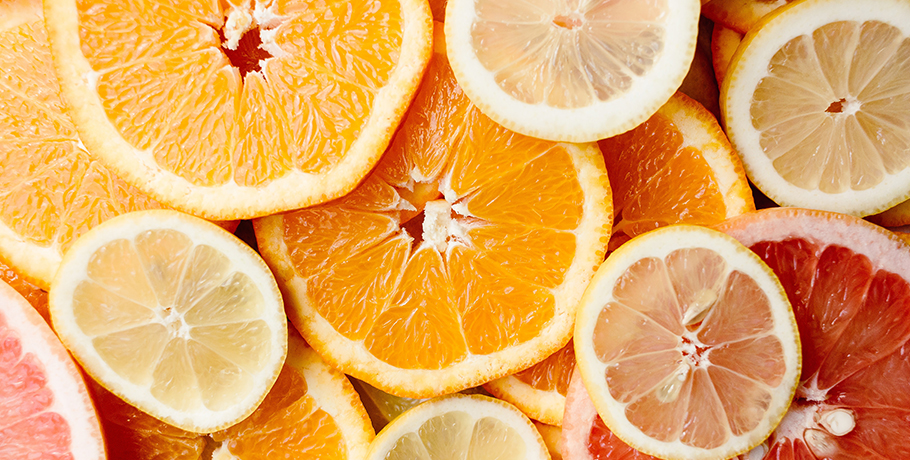
Vitamin C, also known as ascorbic acid, derives its name from the Latin *a scorbutus*, meaning "without scurvy" – the disease that can occur from severe vitamin C deficiency. However, Vitamin C is much more than just ascorbic acid.
Synthetic ascorbic acid is typically made from corn or rice starch and is much more acidic than the natural Vitamin C complex. The Vitamin C found in food is naturally buffered and rarely causes the stomach issues often associated with ascorbic acid. Nevertheless, synthetic ascorbic acid is entirely bioidentical to the ascorbic acid produced in the liver (or kidneys) of all animals, except for humans, monkeys, lemurs, guinea pigs, and a certain species of bat.
Hungarian biochemist Albert Szent-Györgyi, who received the Nobel Prize in 1937 for his discovery of Vitamin C, believed there was a distinction between ascorbic acid and the Vitamin C complex. His research suggested that ascorbic acid was not as effective as the Vitamin C found in fruits and vegetables. He wrote in a 1936 article published in *Nature* that certain "phytochemical colors (flavonols)" were necessary to achieve optimal results.
This was confirmed by a study from Cornell University in the USA, published in *Nature* in 2000. According to the study, 5.7 mg of Vitamin C from whole apples was equivalent to as much as 1,500 mg of isolated ascorbic acid. The researchers concluded that "nearly all the antioxidant activity in apples" was likely due to several other phytochemicals, including phenolic compounds and flavonoids, also present in apples. (Marian V. Eberhardt, Chang Yong Lee & Rui Hai Liu, 2000)
In another study conducted in 2007 at the University of Milan, a single dose of 150 mg of ascorbic acid was compared with 150 mg of Vitamin C from oranges. Participants who received Vitamin C from oranges showed an antioxidant effect in their white blood cells, whereas those who received only ascorbic acid or a placebo did not. (Stevenson DE, Hurst RD, 2007)
Ascorbic acid is still effective
This does not mean, however, that pure ascorbic acid is ineffective, as Nobel Prize winner Linus Pauling demonstrated in his research, which includes over 100,000 published studies and reports on ascorbic acid. He argued that humans need high doses of ascorbic acid to counteract the modern diet's lack of Vitamin C.
In cases of severe and prolonged Vitamin C deficiency, our blood vessels and tissues weaken because collagen – which the body uses to build and repair skin, cartilage, bone, teeth, gums, tendons, ligaments, and blood vessels – breaks down. Linus Pauling theorized that the body cannot produce all the collagen it needs to repair small injuries in blood vessels, even with a mild Vitamin C deficiency.
In 2013, an analysis was finally conducted on the few studies comparing ascorbic acid and Vitamin C from food. The researchers could not identify "any differences between synthetic and natural Vitamin C, regardless of population, study type, or intervention" in "stable comparative studies of bioavailability in humans." However, they noted that the bioflavonoids in plants and fruits are known to influence many types of biological activity in the body and that the phenolic compounds found in Vitamin C-rich plants and fruits appear to be particularly important for the protective antioxidant effect against free radicals. (Carr AC, Vissers MC, 2013)
Which type of Vitamin C supplement should you choose?
For maximum antioxidant effect, it is probably wise to consume the entire Vitamin C complex from food-based sources that contain all the essential cofactors. When necessary, this can be complemented with higher doses of ascorbic acid if the immune system needs an extra boost. Supplements based on whole food contain the complete Vitamin C complex. This is likely why whole-food Vitamin C is both better tolerated by sensitive stomachs and more effective in the body.
Author
Scientific references and sources
Show referenceAlbert Szent-György. Oxidation, energy transfer, and vitamins Nobel Lecture, December 11, 1937
Marian V. Eberhardt, Chang Yong Lee & Rui Hai Liu. Nutrition: Antioxidant activity of fresh apples. Nature volume 405, pages 903–904 (22 June 2000)
Guarnieri S1, Riso P, Porrini M. Br J Nutr. 2007 Apr;97(4):639-43.
Myint PK, Luben RN, Welch AA, Bingham SA, Wareham NJ, Khaw KT. Am J Clin Nutr. 2008 Jan;87(1):64-9.
Carr AC1, Vissers MC. Synthetic or food-derived vitamin C--are they equally bioavailable? Nutrients. 2013 Oct 28;5(11):4284-304. doi: 10.3390/nu5114284.
Stevenson DE, Hurst RD. Polyphenolic phytochemicals--just antioxidants or much more? Cell Mol Life Sci. 2007 Nov;64(22):2900-16.
